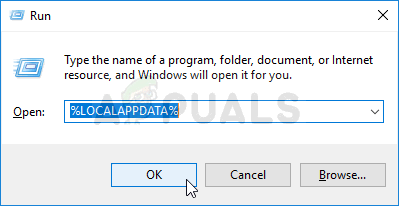Fix: Epic Games Launcher Won’t Open
Epic Games Launcher is an application that lets you run games developed by Epic Games like Fortnite. Lots of users are complaining about not being able to open the Epic Games Launcher. Since this launcher is your gateway to playing games, this can be really problematic. The problem is, as the name suggests, that the epic games launcher is not working. In some cases, users aren’t seeing anything whereas some users are seeing the launcher launch for a short amount of time and then it goes back to its start screen. Whatever may be the case, the bottom line is that people can’t get Epic Games Launcher to start working again.

What causes the Epic Games Launcher to stop working?
There are quite a few things that can cause this problem. The list is given below
- Error state or servers: It’s pretty common to see applications get stuck for no reason. There isn’t a specific answer for why this happens but the most likely case is that applications don’t start properly and all they need is a simple reboot. So, a reboot of the system or the application (in this case, the epic games launcher) fixes the issue.
- Servers: Epic Games servers can cause this issue as well. Whenever you open the Epic Games Launcher, it tries to connect with the Epic Games servers. Your launcher won’t open if it can’t connect to the servers. Another indicator of this issue is your launcher status. If you are seeing your launcher change statuses from being busy to connecting then that means your launcher is fine and it’s the servers. This is a very common thing on update days where there’s a lot of load on the servers. So, the usual solution, in this case, is to just sit and wait.
- Antivirus: Antivirus applications can prevent applications from getting started and Epic Games Launcher is no exception. So if you have an antivirus application installed then that might be preventing your launcher from getting started and working.
Note
- Before performing the steps given in the methods listed below, try to open the launcher and wait for a while especially if there is a new update coming in. In a majority of the cases, the problem was with the servers and users were able to successfully launch the launcher after a few minutes. Some users had to wait at least 30 minutes before their launcher automatically signed in.
- Sometimes applications get stuck and have random issues that no one can explain. These types of issues are usually solved by a simple reboot. So, try to restart your system and see if that works.
- Make sure that there is no issue with Epic Games Launcher servers as recently people have reported there was an outage going on causing Epic Games Launcher to don’t open at all. You can check if there is any server outages going on over (here).
Method 1: Disable Antivirus
If you have an antivirus application installed on your system then start by disabling the application. Antivirus applications are known to block other applications. The good thing is that almost every major antivirus application comes with a disable option nowadays so you don’t have to completely uninstall it. Follow the steps given below to disable the antivirus application
- Right-click on your antivirus icon from the system tray
- Select Avast Shield control (this option will vary depending on your antivirus)
- Select the appropriate time option for disabling the antivirus

If everything starts working fine after disabling the antivirus application then the problem is with your antivirus. You can either uninstall the antivirus or add your launcher to its whitelist. Both of these options will work.
Method 2: End Task Epic Games Launcher via Task Manager
As mentioned at the beginning of the article, sometimes there’s no issue and applications misbehave because of unknown reasons. A simple reboot of the application usually resolves this kind of issue. A lot of users found that ending the launcher task through Task Manager and restarting the launcher fixed the issue for them. So, follow the steps given below to end task the launcher via Task Manager
- Hold CTRL, SHIFT, and Esc keys (CTRL + SHIFT + ESC) to open the Task Manager
- Locate the Epic Games Launcher application from the processes list and select it
- Click End Task

- Close the Task Manager
Now restart the launcher and everything should work just fine.
Method 3: Change Launcher Properties
Changing the properties of the launcher and adding “-OpenGL” at the end of the launcher location has helped resolve the issue for many users. Follow the steps given below for detailed instructions
- Go to the Desktop where the shortcut for the launcher is
- Right-click the Epic Games Launcher and select Properties

- Now locate the Target field (make sure the Shortcut tab is selected) and add “-OpenGL” (without quotes) at the end of the target field. Type “-OpenGL” (without quotes). The contents of the Target field should look like this “C:\Program Files (x86)\Epic Games\Launcher\Portal\Binaries\Win32\EpicGamesLauncher.exe” –OpenGL
- Click Ok then select Apply

This should fix the issue.
Solution 4: Deleting WebCache Folder
In some cases, the issue can be caused if a certain cache related to the launcher has been corrupted, therefore, in this step, we will be deleting that cache which will automatically be regenerated later. For that:
- Press “Windows” + “R” to open Run.
- Type in “%localappdata%” and press “Enter“.

Opening the LocalAppData folder - Open the “Epic Games Launcher” and delete the “Webcache” Folder.





